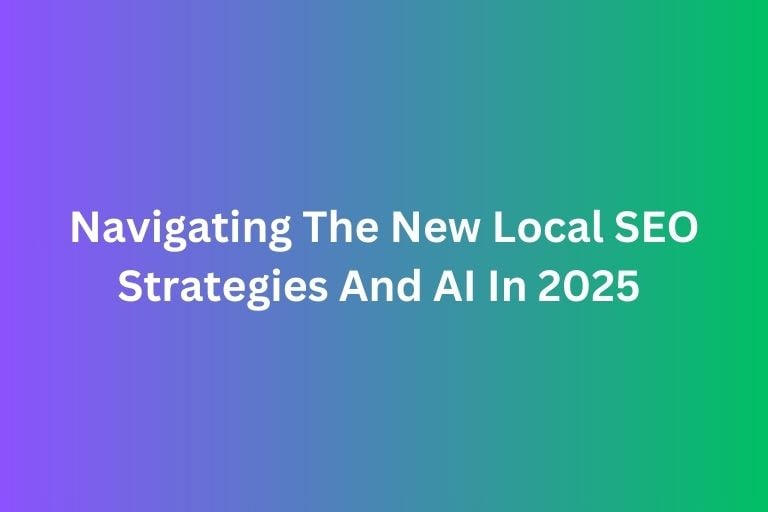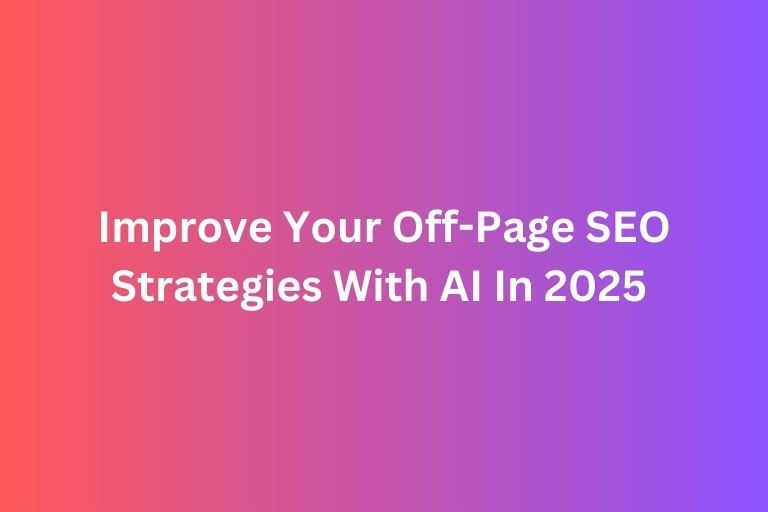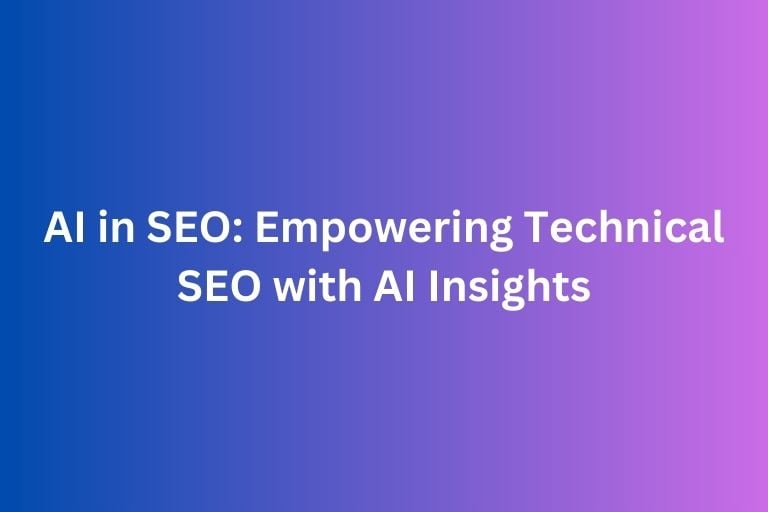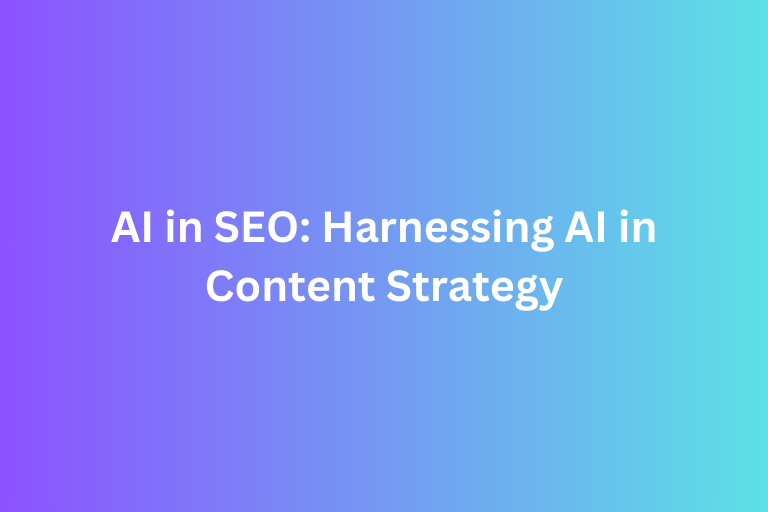In the rapidly evolving landscape of digital marketing, keyword research remains a foundational pillar of effective SEO. Yet, as artificial intelligence (AI) reshapes the way we search, consume, and engage with content, the traditional keyword research playbook is undergoing a profound transformation.
Today, SEO professionals must move beyond basic techniques and embrace a more intelligent, intent-driven approach to keyword strategy—one powered by AI and aligned with business goals.
The emergence of AI-enhanced keyword tools, predictive search modeling, and contextual understanding offers new opportunities to anticipate demand, uncover market gaps, and create content that truly resonates.
Let's find out how AI-powered tools can help when doing keyword research, like identifying keyword opportunities and more.
From Manual Discovery to AI-Driven Insight
Traditionally, keyword research involved manually identifying high-volume keywords, evaluating competition levels, and optimizing content accordingly.
While these fundamentals remain important, the scale, speed, and sophistication of today’s search environment require more advanced methods.
AI-powered tools now process extensive datasets in real time, identifying keyword opportunities that may have been previously invisible to human analysis.
These platforms analyze user behavior, search context, and historical data to surface long-tail phrases, trending topics, and emerging queries—enabling marketers to stay ahead of the curve rather than react to it.
Moreover, these tools can differentiate between surface-level search queries and the deeper intent behind them. For example, AI can distinguish between transactional, informational, and navigational searches, helping marketers align content more precisely with user expectations and stage in the customer journey.
Continue reading: Understanding the Shift in SEO and AI's Influence
Practical Steps for AI-Empowered Keyword Strategy
To remain competitive in this evolving landscape, SEO professionals and digital teams must adopt practical, AI-integrated approaches to keyword research. Here are several key strategies:
- Leverage Predictive SEO Tools: Use platforms like MarketMuse, SEMrush’s Keyword Magic Tool, or Ahrefs to identify not only current keyword trends but also emerging topics based on AI predictions. These tools can highlight shifts in search behavior and provide foresight into which keywords will grow in importance over time.
- Focus on Search Intent: Classify keywords according to user intent—informational, transactional, or navigational—and build content that aligns with each phase. AI can help cluster keywords semantically, allowing you to create comprehensive content that addresses multiple facets of a topic.
- Identify and Fill Content Gaps: AI analysis can compare your existing site structure and content against top-performing competitors to identify areas where your site may be lacking. Filling these gaps not only improves relevance but strengthens your overall authority on a subject.
- Optimize for Long-Tail and Conversational Keywords: As voice search and conversational AI tools (like chatbots and virtual assistants) gain traction, optimizing for natural language queries becomes increasingly critical. AI can help identify these phrases and integrate them naturally into your content strategy
- Refine Content Continuously: With AI, keyword research is no longer a one-time effort. It’s an ongoing process. Real-time performance insights allow for continuous iteration, testing, and refinement of your keyword strategy to keep pace with algorithm changes and shifting user behavior.
Continue reading: Search Smarter, Not Harder: Why Intent-Driven SEO Is The Future
Continue reading: Closing the Gap: How to Identify and Fix Content Gaps in 2025
Strategic Alignment and Business Impact
This transformation in keyword research is not just a strategic shift. The ability to forecast search trends, understand user motivations, and create high-value content aligned with business goals is now central to SEO success.
For example, a SaaS company might use AI-powered keyword insights to discover a rise in interest around a specific integration or pain point.
By quickly developing content that addresses that topic and matches the user’s intent, they position themselves as a thought leader while capturing organic traffic that converts into qualified leads.
Likewise, a retail brand anticipating seasonal trends through predictive SEO can prepare campaigns and content in advance, gaining a first-mover advantage and capturing intent before competitors even realize the opportunity exists.
Educating for the Future: Building Next-Gen SEO Talent
As AI continues to advance, SEO professionals must expand their capabilities accordingly. For educational institutions and digital academies, this means training the next generation of SEO talent not only in the technical foundations but in data-driven decision-making, search psychology, and AI integration.
Course content should reflect the new realities of search, emphasizing predictive analytics, content strategy, and cross-functional alignment between SEO, content, and business teams.
Ultimately, those who can combine AI-driven insight with human creativity and strategic thinking will deliver the greatest business impact.
A Strategic SEO Partner With FoxAdvert
Organizations seeking to accelerate their SEO evolution can benefit from expert guidance. FoxAdvert, a leading SEO service agency, specializes in combining AI-powered keyword research with deep market insights to develop content strategies that drive results.
With a focus on aligning SEO efforts with overarching business goals, FoxAdvert helps brands stay ahead of search trends and convert insight into impact. Let's get started! >>> Book an appointment now!
Conclusion
Keyword research is now about understanding people, predicting their needs, and delivering value at the moment they seek it.
With AI as an enabler and strategic alignment as the guide, modern SEO becomes a powerful lever for business growth. The future of keyword strategy lies not just in discovery, but in intelligent, data-informed decisions that shape visibility, relevance, and long-term success.











